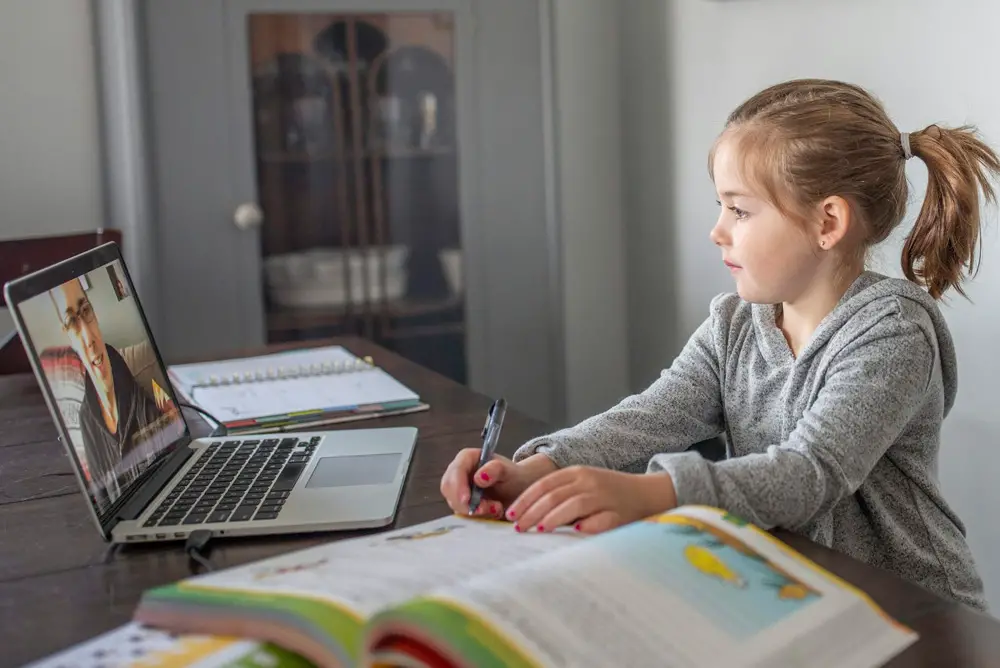
By Gabriel E. Hales and Keith N. Hampton
Students in rural America still lack access to high-speed internet at home despite governmental efforts during the pandemic to fill the void. This lack of access negatively affects their academic achievement and overall well-being. The situation has been getting worse as the urgency of the pandemic has receded.
Those findings are based on a new study we did to determine the post-pandemic outlook on internet access for rural students.
During the pandemic, school districts quickly deployed emergency resources such as Wi-Fi hot spots to facilitate remote learning. In rural Michigan, student home internet connectivity soared to 96% by the end of 2021, a remarkable 16 percentage-point increase from 2019.
However, these gains are proving temporary. By 2022, student access in rural Michigan began to decline. Today, many more students are disconnected than during the height of the crisis. The downward trend is likely to continue as resources from pandemic emergency measures diminish
We surveyed students in grades 8-11 from 18 rural Michigan schools before and after the pandemic, tracking changes in their digital access, educational outcomes and well-being. We found that one-third of rural students still lack high-speed broadband internet at home.
Why it matters
Our recent report highlights how rural gaps in access to the internet, mainly the lack of broadband home internet access, were not resolved over the pandemic. And these persistent access gaps could affect students’ digital skills, academic performance and well-being.
Rural students lacking adequate home internet face significant educational disadvantages compared with their better-connected peers. These disadvantages include lower classroom grades, lower standardized test scores, lower educational aspirations and lower interest in STEM careers. Our findings link these adverse outcomes, which start with access gaps, to subsequent gaps in digital skills. These digital skills are less likely to develop without reliable broadband connectivity at home.
In early 2020, schools mobilized state and federal relief to provide students with home internet and laptops. Our study demonstrates the success of these initiatives in rural areas, where school-provided Wi-Fi hot spots accounted for nearly all of the 16 percentage-point increase in home internet access during the pandemic’s peak. Importantly, as hot spot funding has ended, many households maintained access by subscribing to local internet service providers.
The success in transitioning students from school-provided Wi-Fi hot spots to paid subscriptions is now at risk. Many low-income households rely on the Affordable Connectivity Program, the nation’s largest internet affordability initiative, created under the Bipartisan Infrastructure Law of 2021. This program provides a monthly discount of up to US$30 for eligible households and up to $75 for households on Native American tribal lands. The program is set to expire in April 2024.
We found that internet access among rural students had begun to decline in 2022. This trend is likely to accelerate with the end of the Affordable Connectivity Program.
Young people’s time spent online – such as surfing the internet, playing video games and interacting on social media – helps them develop valuable skills. These skills include problem-solving, information literacy and creative expression. These skills apply across both digital and offline environments. Our research shows that digital skills helped rural students maintain their interest in STEM fields and their goals of pursuing college, even as these interests declined during the pandemic.
Additionally, rural adolescents are at a heightened level of risk for social isolation. While adolescent mental health within our study – as measured by self-esteem – returned to pre-pandemic levels, rural students without adequate home internet remain at higher risk.
What still isn’t known
A major challenge in bridging the access divide is pinpointing underserved areas. Accurate maps are crucial to direct billions of dollars in funding from programs such as the Broadband Equity Access and Deployment Program, also known as BEAD, and the Rural Digital Opportunity Fund toward truly underserved communities. As part of the process to receive BEAD funding, each state must identify unserved and underserved homes. Local governments, nonprofit organizations and internet service providers can also develop scientifically rigorous and reliable approaches to challenge the accuracy of these maps.
Maps must be finalized and grants must be made to states before large-scale infrastructure improvements will commence. However, some other early initiatives are now coming online. For example, in 2022, the Quello Center at Michigan State University, in partnership with a regional education network nonprofit, started the Michigan MOON-Light project. Funded with a $10.5 million grant from the Broadband Infrastructure Program, this project increases the bandwidth on Michigan’s education network that is being made available to local service providers. These providers will deliver reliable high-speed internet to 17,000 previously unserved households by the end of 2024.
Still, other major infrastructure improvements across the country will not be realized for several years.
![]()
Gabriel E. Hales is a doctoral candidate and research assistant at Michigan State University, Keith N. Hampton is Professor of Media and Information and Interim Director of the Quello Center at Michigan State University.





























Leave a Reply